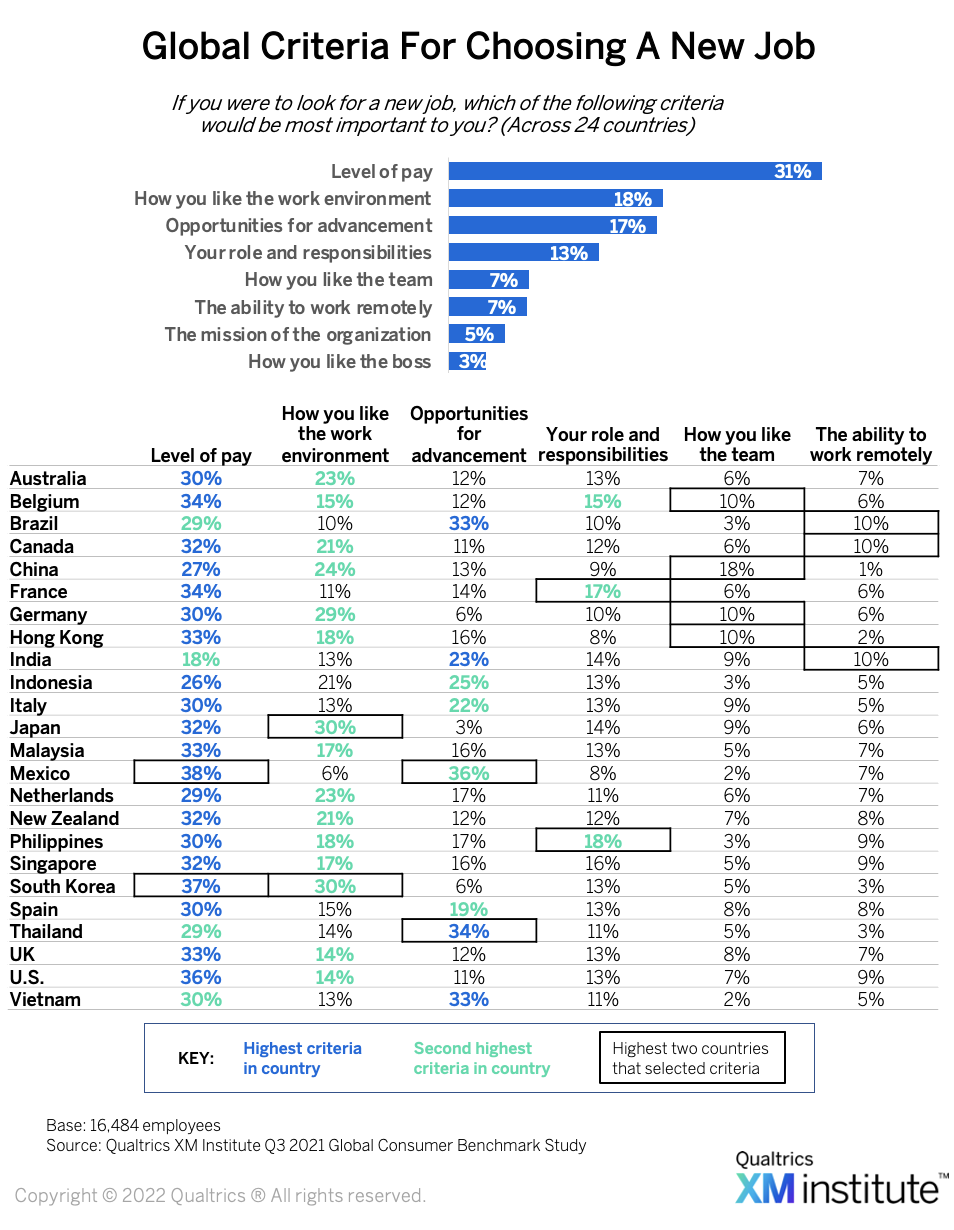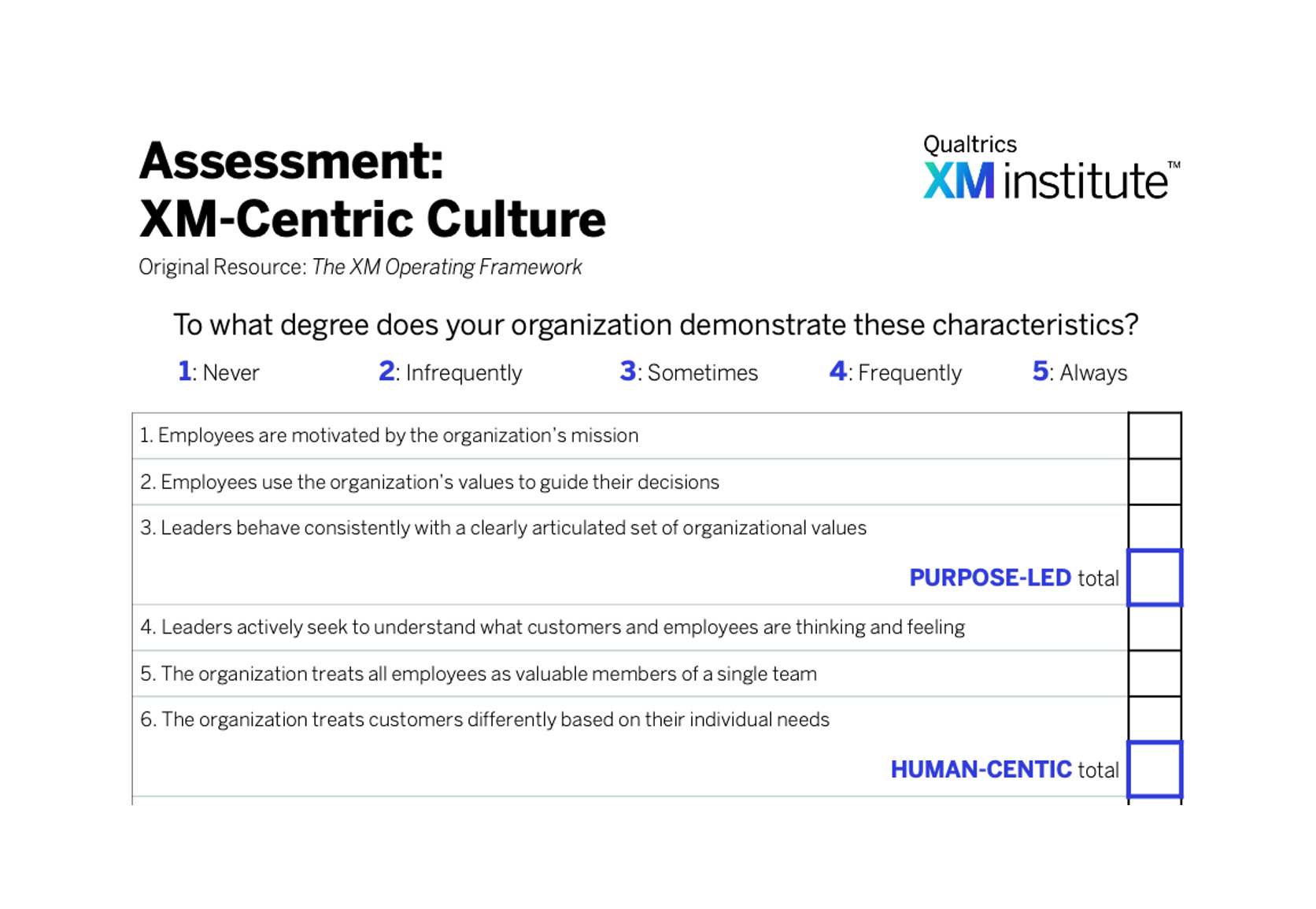In a recent post, we examined the profile of more than 72 million U.S. employees who are likely to look for a new job. Rather than obsessing about “The Great Resignation,” we recommended focusing on “The Great Onboarding.” As employees shift jobs, some employers will lose their best people, while others will upgrade their workforce. The winners in this market will be the ones that retain their key people while attracting, hiring, and ramping up the top candidates.
We decided to take a closer look at this fight for talent. In our latest global consumer study, which spans 24 countries, we asked more than 16,000 employees about their desires for a new job by posing this question, If you were to look for a new job, which of the following criteria would be most important to you? Respondents were provided with the choice of eight response options. As you can see in the chart below:
- Level of pay is a minimum requirement. On average across the 24 countries, 31% of employees say that level of pay is most important to them in a new job, well above any other criteria. It is also the top item in 20 countries. Level of pay is most important in Mexico (38%) and South Korea (37%), and least important in India (18%).
- In some countries, advancement is critical. In four countries—Brazil, India, Thailand, and Vietnam—employees picked opportunities for advancement as their top criteria for a new job. It is also the second most popular element in four of the other countries. Overall the desire for advancement ranges from a high of 36% in Mexico down to a low of 3% in Japan.
- Work environment consistently matters. For 15 of the 24 countries, how you like the work environment is the second most popular input for selecting a new job. This criterion ranges from 30% in Japan and South Korea down to 6% in Mexico.
- Roles and responsibilities are important to a few. While on average only 13% of employees selected your roles and responsibilities as the most important criteria, it was the second most important for employees in Belgium, France, and the Philippines. This job selection element ranges from 18% in the Philippines to 8% for Hong Kong and Mexico.
- The Chinese care about their teams. While how you like your team was only chosen as a criterion 7% of the time on average across the 24 countries, it was selected by 18% of Chinese employees. In the next highest countries, only 10% of employees selected their team as the most important criteria for a new job.
- Other areas are less important. Not too many employees put remote work at the top of their list for a new job, as it tops out at 10% in Brazil, Canada, and India. We didn’t share the country-level details for the lowest two criteria, but at the high end of those items, 9% of Indian employees selected the mission of the organization and 7% of employees in Hong Kong selected how you like the boss.

This study provides a good high-level comparison of interests across employees from different countries. However, to better understand your specific target employee base, you may want to dig deeper into their preferences. Consider using a tool like conjoint analysis to discern these trade-offs, as we did in this earlier study of U.S. job candidates. Use all of this information as input to build a strong employer brand that helps you retain and attract the best talent, while also ensuring that you design a world-class onboarding journey that quickly and effectively transitions job candidates from new hires to highly productive and engaged employees.
The bottom line: Don’t focus on who’s leaving, win the battle for talent.
Bruce Temkin, XMP, CCXP, is the Head of Qualtrics XM Institute





